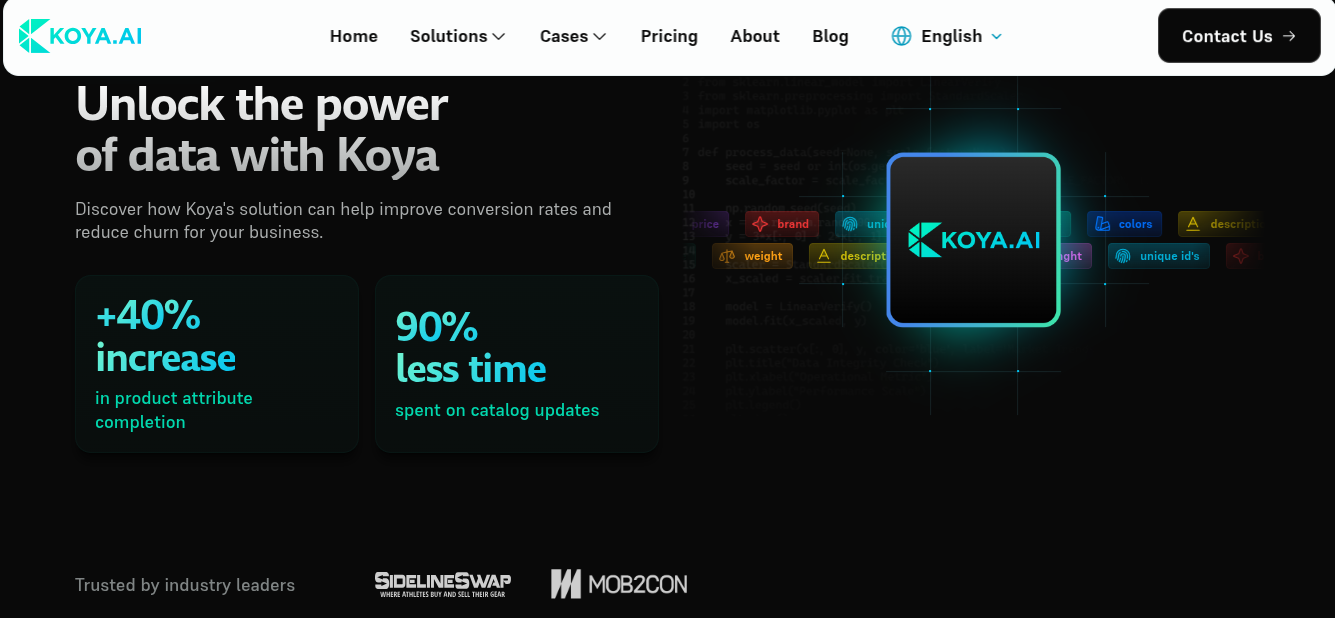Overview
Koya AI is a seamless catalog data management platform designed for e-commerce marketplaces, procurement platforms, and data aggregators. It streamlines the collection, standardization, enrichment, categorization, and deduplication of product data from diverse sources. By transforming messy, inconsistent catalogs into clean, searchable, and complete datasets, Koya AI helps businesses enhance operational efficiency, improve conversion rates, and drastically reduce churn — all while saving significant time spent on manual catalog updates.
Key Features
- Data Collection and Aggregation: Consolidates product data from multiple sources into a unified, high-quality feed.
- Product Deduplication: Removes duplicates with AI-driven matching algorithms, ensuring catalog accuracy.
- Smart Categorization: Automatically organizes products into correct categories for easier browsing and discovery.
- Product Data Normalization: Cleans and standardizes inconsistent product information to maintain data quality.
- Data Enrichment: Fills in missing data fields like weight, dimensions, color, and brand to complete product profiles.
- Universal API: Offers a flexible API to integrate Koya’s catalog services into existing platforms seamlessly.
- Scalability: Handles catalog data at any scale, from hundreds to millions of SKUs.
Pros
- Massive Time Savings: Significantly cuts down the time spent manually gathering, cleaning, and enriching data.
- Higher Conversion Rates: Clean and complete product catalogs lead to improved customer experience and increased sales.
- Operational Efficiency: Automates tedious catalog management tasks, freeing up internal teams.
- Flexible Integration: API-first approach enables easy adoption into existing tech stacks.
- Trusted by Industry Leaders: Used by e-commerce companies and platforms aiming for faster growth and better data hygiene.
Cons
- Initial Setup Learning Curve: Some integration and initial data structuring effort required to unlock full potential.
- Tailored for Larger Catalogs: Best suited for marketplaces and platforms with large or complex product datasets.
- Depends on Source Data Quality: The quality of the final catalog is partly influenced by the incoming data integrity.

